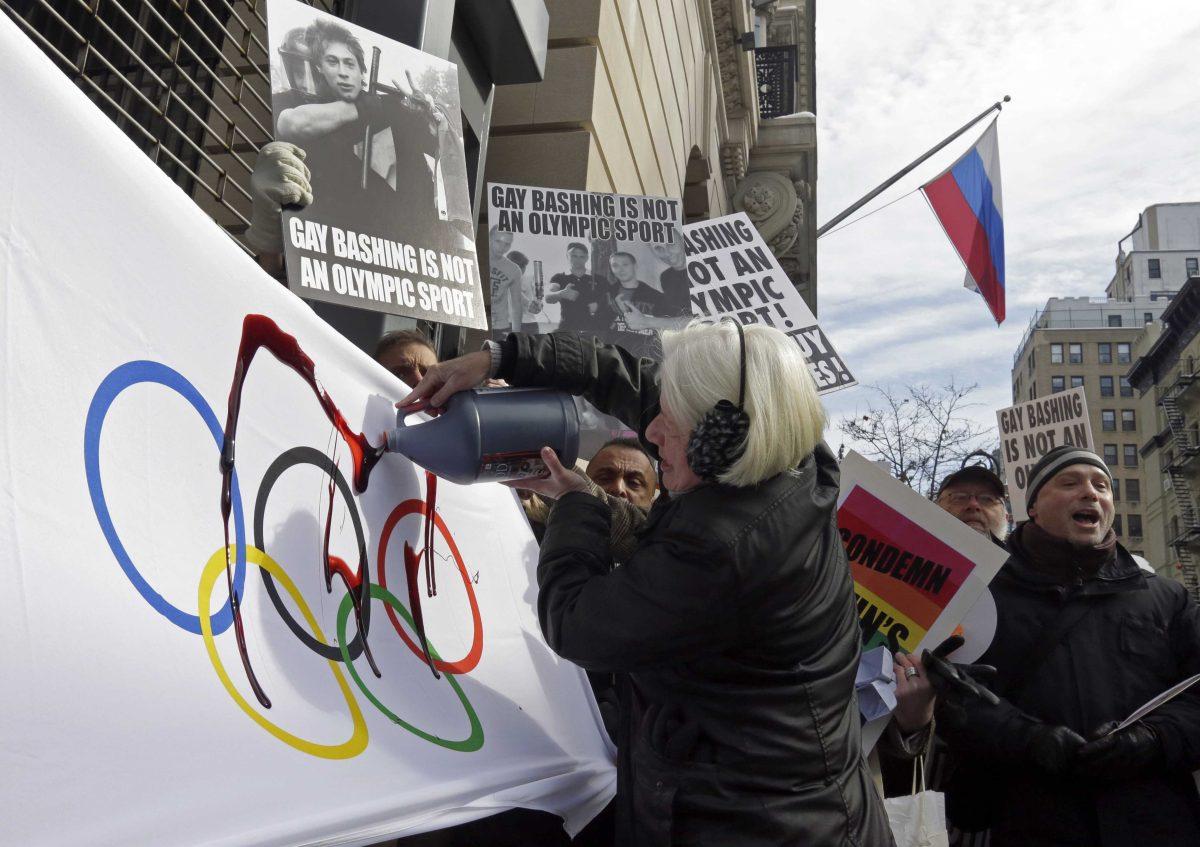The 2014 Winter Olympics have turned into a playground of Russian LGBT politics and passive-aggressive, so-called activism.
During the opening ceremonies of this year’s Olympics, President Barack Obama joined several western leaders in a boycott against Russian President Vladimir Putin. Obama said the aim was to support the athletes but not the actions being taken against Russian LGBT citizens.
Of course it would have been outrageously unfair to bench our 230 American Olympic athletes who have spent much of their lives training for their spot on the roster. But Obama’s simple, passive-aggressive stance has me worried about what we qualify as activism.
Several companies, such as Google and Chobani, have released advertisements practically screaming LGBT political support with the powerful use of a spectrum of colors.
Or that’s what we were all hoping for. Instead we got subtle implications with multi-colored campaigns.
Similarly, LSU’s Greek system asks each organization to host a philanthropic event, and while some students participate because they are legitimately supportive, the majority are just there to get points.
While the efforts put forth by Greek Life help those causes, the motivation coming from personal gain limits future efforts made for that cause.
And there’s a lot of limitation when we look at American politics and activism.
When Obama or Google made their moves, they did so with clear consciences. And that’s great, but it’s not actually helping LGBT Russians who are being arrested simply for their sexual orientation
Activism is not about keeping a clear conscience or personal integrity intact while navigating through oppressive systems. It’s about the destruction of oppressive systems to better the world for everyone.
What we’re seeing here is slacktivism — the use of Internet and media campaigns to proclaim a stance on an issue. Slacktivism is as dangerous as it is effortless.
The greatest example of slacktivism is KONY 2012. Millions of online activists expressed outrage that guerilla war leader Joseph Kony was abducting thousands of children to fight in Uganda.
Did changing our Facebook cover photos and tweeting #StopKony2012 actually accomplish anything? The year 2012 has come and gone, Kony has yet to be captured and children are enslaved around the globe everyday. So that would be a no. It hasn’t changed much.
The dispersion of this type of campaign is something to applaud, though. We had a clearly defined bad guy, a plan to stop him and an invitation to urge our government leaders to take action.
The problem with this is the bad guy isn’t so easy to find in systems of oppression.
Take the Olympics for example: Putin is a major supporter of anti-gay laws. But the majority of Russia seems to be supporting both Putin and the laws.
Does that make most of Russia the bad guy?
Defining Kony as the leader of child abductions created a clear, seemingly achievable goal for supporters. Take down Kony, and the abductions will end.
Overthrowing an entire country’s mentality, while not impossible, is a bit difficult for young adults to support.
Neglecting to use the Internet as a resource for spreading awareness would be foolish at this point, but there should be a larger effort to incorporate Internet activism in all of its depths.
Remember, becoming an activist isn’t as easy as clicking the Facebook “Like” button.
Jana King is a 19-year-old communication studies sophomore from Ponchatoula, La.
Opinion: Social media activism in need of an attitude change
By Jana King
February 11, 2014
Activist Ann Northrop is joined by demonstrators from Queer Nation, and others who oppose the Russian government’s continued attacks on human rights, including the rights of LGBT Russians, as she pours fake blood on an Olympic flag, marking the start of the 2014 Winter Olympic Games with a protest, outside the Consulate General of the Russian Federation, in New York, Thursday, Feb. 6, 2014. (AP Photo/Richard Drew)
More to Discover








